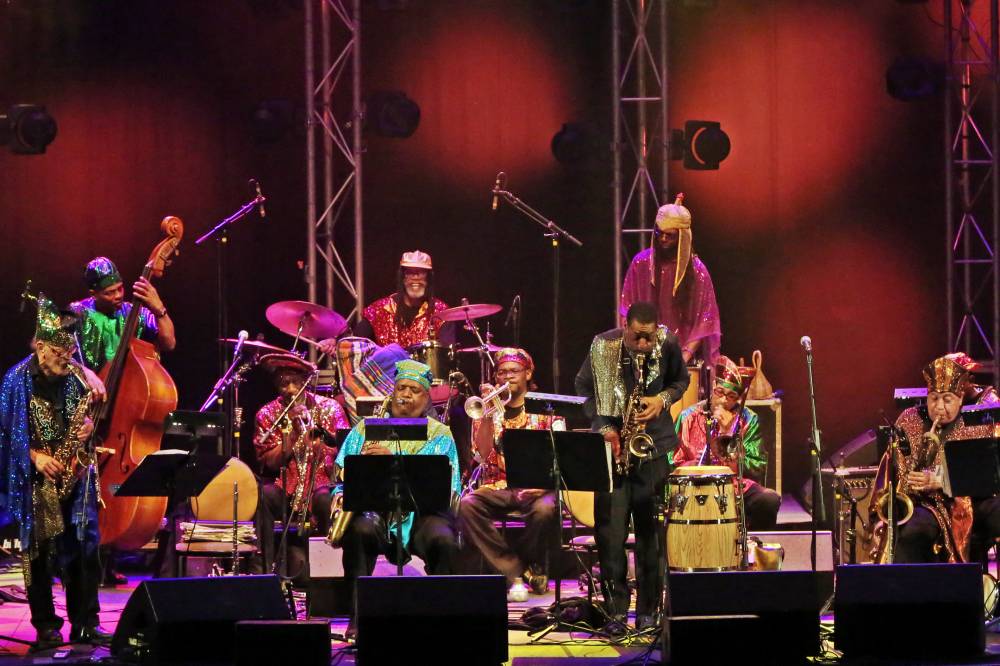State Theatre, January 18

Perhaps it’s the absence of gravity, but exploring outer space via the music of Sun Ra for 57 years has made Marshall Allen the youngest 89-year-old man I’ve seen. Each time he detonated the incendiary device known as his alto saxophone the State Theatre’s glorious ceiling lifted a little closer to Mars.
This was blazing, visceral, speech-like playing. Then, just when it seemed he may have become a one-trick pony in his seemingly late middle age, an exquisite duet with pianist Farid Barron on When You Wish Upon a Star comprehensively proved otherwise. Allen alternated between braying out one snatch of the melody and making the next twinkle like a dream of a distant star.
He led a 13-piece version of the Arkestra that Sun Ra – a self-proclaimed angel from Saturn, who died in 1993 – formed in the early 1950s. Back then it anticipated the avant garde developments of the 1960s, while fondly looking backwards towards Duke Ellington and Fletcher Henderson – probably via some cunning use of time travel.

This concert also mixed the bold and the reassuring, the wild and the goofy. It became unmistakable that the Arkestra is imbued with more of the spirit of its late leader than were the Mingus or Basie bands on their visits. Its members had rollicking fun delivering brilliant music, and that joyousness spread through the room like a contagion.
The repertoire ranged across only a corner of Sun Ra’s galaxy of compositions, of course, and then, typically, it also reached as far as Sometimes I’m Happy (Sometimes I’m Sad), one of several pieces sung by Tara Middleton in a lush contralto. The arrangements were variously punchy, bewitching and ad hoc (sometimes compromised by glitches in the mixing), and the band included some fine soloists, including Barron, Noel Scott (alto saxophone and, would you believe, acrobatics!) and James Stewart (tenor).
But, Allen apart, this was less about individuals than about the legacy of one jazz’s greatest artists, presented as a sonic voyage of discovery that culminated in the anthemic Space Is The Place. Just ask Marshall Allen.